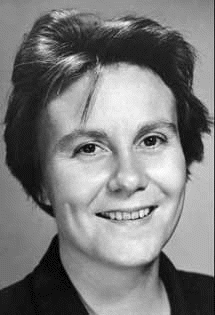N

NEXT
HIGH SCHOOL

Abigail Adams
(1744-1818)

Harriet Beecher Stowe
(1811-1896)
Learn about Harriet Beecher Stowe, Abigail Adams and Nelle Harper Lee, three impressive women who wrote against racism.
Read or watch the audiobook Uncle Tom's Cabin:

Harper Lee
(1926)
Abolitionist women, literature and political activism against slavery.
From: http://www.nndb.com/people/572/000025497/
"Harper Lee was born in Monroeville, Alabama, a tiny town about halfway between Montgomery and Mobile, where her next-door neighbor and best friend was the pre-pubescent Truman Capote. Her father -- a lawyer and the basis for Atticus Finch in To Kill A Mockingbird -- served in the Alabama legislature from 1927 to 1939. He was reportedly a staunch segregationist until the late 1950s, when the increasing civil rights protests caught his attention and sympathies. Despite popular assumption, the family are not distant descendants of Confederate General Robert E. Lee.
Lee attended three colleges, studied law, and was briefly an exchange student at Oxford, but she received no degrees. By the 1950s she was working as an airline reservations clerk, writing in her free time, until she received a remarkable Christmas present from friends -- a year's wages, without having to work. She argued that they could not afford such generosity, but they insisted that with her talent and a year without distraction, something wonderful would result.
What resulted was To Kill A Mockingbird, published in 1960 and now widely acclaimed as one of the best American novels. It spans three years in the childhood of Jean Louise "Scout" Finch, a young Alabama girl, and her older brother Jem, while their widowed father, small-time attorney Atticus Finch, defends a black man falsely accused of raping a white woman. Deftly sewing these threads into a story larger than its small-town characters and setting, the book spent eighty weeks on the best-seller list, sold 30,000,000 copies, and has been translated into more than forty languages. It won the Pulitzer Prize in 1961, and was adapted into a film in 1962, starring Gregory Peck.
Lee accompanied her old friend Capote as he trekked to Kansas researching In Cold Blood, and she was so deeply involved in that book's creation that by some accounts she deserved co-author credit. Capote was the inspiration for the neighbor boy 'Dill' in To Kill A Mockingbird, and he said that a character in his Other Voices, Other Rooms was based on Lee.
Lee's Christmas benefactors were Broadway lyricist Michael Brown and his wife Joy. Brown is best remembered for his work on the 1955 stage musical House of Flowers from a Capote short story. The play starred Pearl Bailey and Diahann Carroll.
In her last interview, in 1964, Lee said she had "never expected any sort of success with Mockingbird", and that she was having a difficult time writing her next novel. She wrote a few magazine essays after Mockingbird was published, but another novel has never yet appeared under her byline. Now in her 80s, Lee lives with her sister Louise, eschews all publicity, declines all interview requests, and rarely makes public appearances.
Pulitzer Prize for Fiction 1961 for To Kill A Mockingbird"
Watch a lecture about her: